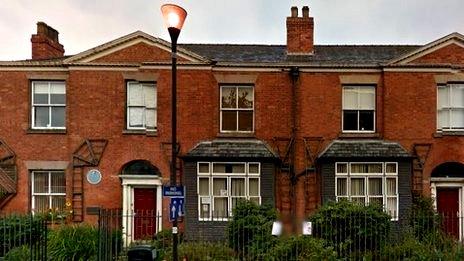Manchester's women who fought for change
- Published
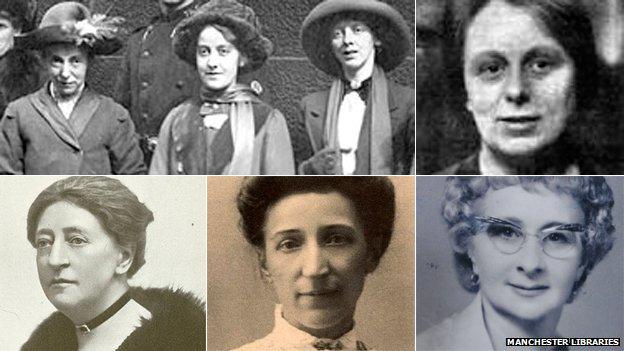
Many women have fought for change and rights in Manchester, though not all are as well known as the likes of Emmeline Pankhurst and Elizabeth Gaskell
Trade unionist Mary Quaile is being celebrated with a day of events in Manchester, one of the cradles of the movement. 'Who?' you might ask, because she is one of many women from the city whose social contributions far outweigh their fame.
Author Elizabeth Gaskell and suffrage campaigner Emmeline Pankhurst are women whose endeavours have echoed through generations, but Mary Quaile's contributions to the fight for change were said to be no less important.
Her story is one of courage and determination, which began shortly after she arrived in the city from her birthplace of Dublin in 1908.
She helped found a union for cafe workers and led a strike by waitresses, an involvement which would see her become an organiser for the Manchester and Salford Women's Trades Union Council.
During World War One, she supported the anti-conscription campaign, flying in the face of public opinion.
Following the conflict, she became an organiser for the Transport and General Workers Union and from there, she was elected to the TUC's general council and spoke at rallies around the country during the general strike of 1926.
Returning to Manchester in the 1930s, she became the treasurer for the Manchester Trades Council, a role she held for many years. When she died in 1958, the Manchester Guardian spoke in glowing terms of her work.
It said her "determination to get trade unionism for women accepted was often met with jeers, boos, rotten apples, and threats of violence", but that she "never betrayed any sign of fear when faced with hostility".
"Her warmth and lovable personality won for her many friends in the labour and trade union movement," it added.

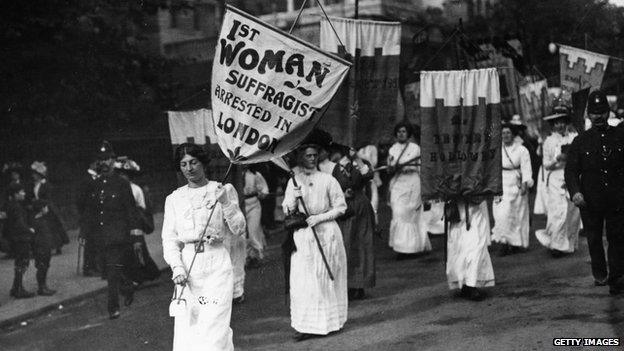
Key dates for women's suffrage
•1867: MP John Stuart Mill supports equality for women in the Second Reform Act, but is defeated
•1903: The Women's Social and Political party, later referred to as the suffragettes, holds its first meeting
•1918: Representation of the People's Act allows women over 30 to vote
•1928: Women over 21 get the vote
Listen to women describing their role in the suffrage movement

The Mary Quaile Club's Michael Herbert says that while she is "largely forgotten today", the issues she campaigned for are "just as relevant today as they were a century ago".
"There is still a tradition of trade unionism in Manchester to which Mary contributed," he says.
"However, many young people work in industries with no union and the same struggle for basic rights and effective representation is being fought again."
But who are the other unheralded women who contributed to the fight for rights and change in the city?

Lilian Forrester, Annie Briggs and Evelyn Manesta
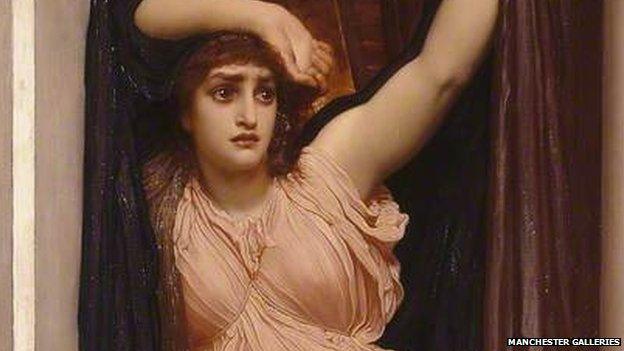
The women damaged 13 paintings. Seven, including Frederic Leighton's The Last Watch of Hero, can still be seen at the gallery
Forrester, Briggs and Manesta's main moment of radicalism and defiance came on the evening of 3 April 1913, when an attendant at Manchester Art Gallery heard the sound of smashing glass.
Three women were found hammering the glass of the largest and most valuable paintings in the collection. The police were called and the three were arrested.
They had taken the action in protest to the sentencing of Emmeline Pankhurst the day before to three years penal servitude for "inciting persons unknown" to burn down buildings.
At trial, Briggs - a housekeeper - said she was not guilty as she had only aided the other two. Forrester and Manesta did not dispute their charges, but described themselves as "political offenders".
Briggs was acquitted, while Forrester was sentenced to three months in prison and Manesta to one month.
Sentencing them, the judge said: "If the law would allow, I would send you round the world in a sailing ship as the best thing for you."

Margaret Ashton
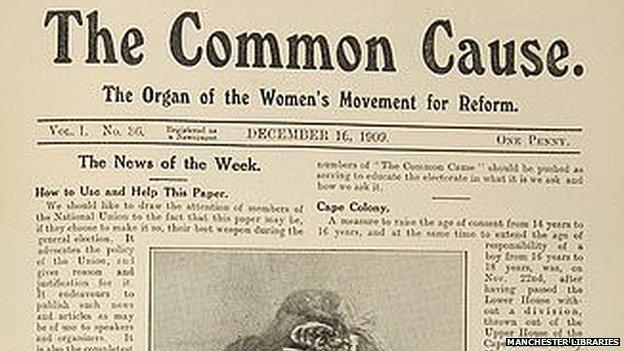
Margaret Ashton financially supported the Common Cause, the suffragist newspaper
Born in 1856, Margaret Ashton was to go on to achieve political success, public infamy and anonymity in her lifetime.
A campaigner for social change, she was the first woman to run for a city council seat in Manchester and, in 1908, succeeded in her aim, becoming the first female councillor when she won in the district of Withington.
At the time, she was involved with the suffragette movement and used her councillor status to voice her opinions on votes for women, health and education.
Splitting from the suffragette movement at the beginning of World War One, she started the Manchester branch of the Women's International League of Peace and Freedom, organising a public peace rally in 1917 that was stopped by the police.
Her pacifism was seen as unpatriotic and treacherous and the city council not only berated her for it, but passed a 1921 resolution that labelled her as a friend of the enemy and pro-German, statements that were untrue.
The council also refused to hang a portrait commissioned to celebrate her 70th birthday. It was not hung until 2006.

Hannah Mitchell
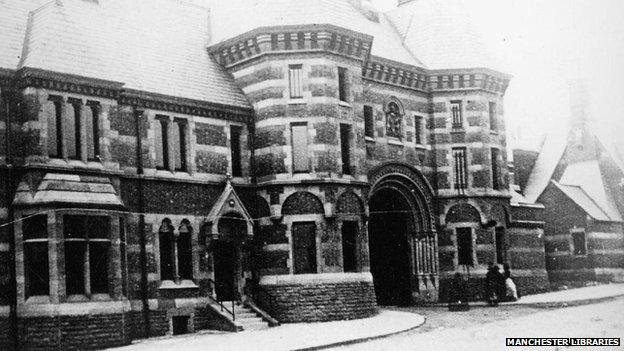
Hannah Mitchell was imprisoned in Strangeways for her part in a demonstration in 1906
Hannah Mitchell was born to a poor farming family in 1872 and left home at an early age to become a seamstress in Bolton.
There she became involved in the socialist movement, an interest which would see her take up a role in the campaign for women's suffrage.
Her presence at a demonstration in 1906 saw her briefly imprisoned in Strangeways and she later campaigned against conscription in World War One.
She went on to be elected as a councillor for Newton Heath in 1924 and became a magistrate in 1926, serving in both positions for more than a decade.
In her autobiography, which was published after her death in 1956, she said one of her proudest achievements was getting a public wash house built to make working class women's lives easier.

Betty Tebbs
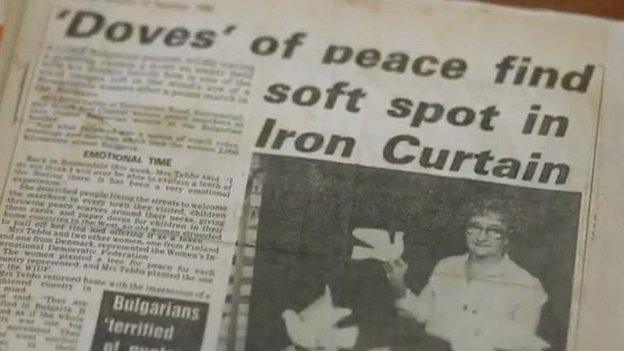
Betty Tebbs met with world leaders on the subject of nuclear disarmament
Born at the end of World War One, Betty Tebbs has spent her whole life working to empower women and fighting for peace.
She became involved with women's rights at an early age when, as a teenager, she realised she was paid less for doing her job at a paper mill than a boy was for doing the same work.
This led to her involvement in trade unionism. But after she lost her husband in World War Two and saw the atomic bombings of Hiroshima and Nagasaki, she turned her attention to the campaign for peace.
In 1978, she became the chairwoman of the National Assembly of Women and met with world leaders on the subject of nuclear disarmament.
She says that, sadly, was one argument she did not win.
Far from retiring in her later years, her activism continued and she was arrested while blockading a military base in Faslane, Scotland in 2007.
The Mary Quaile Day takes place at the Methodist Hall on Oldham Street as part of Manchester's Wonder Women festival on Saturday 21 March.
- Published8 March 2015
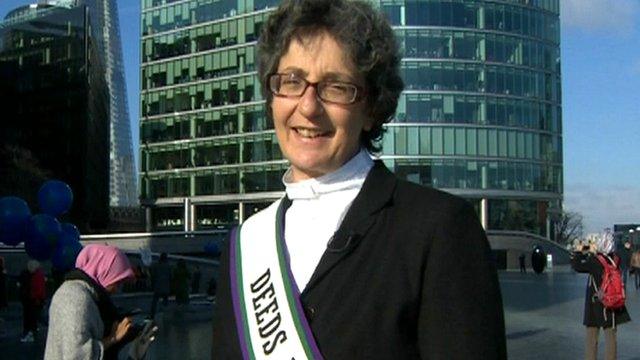
- Published2 October 2014
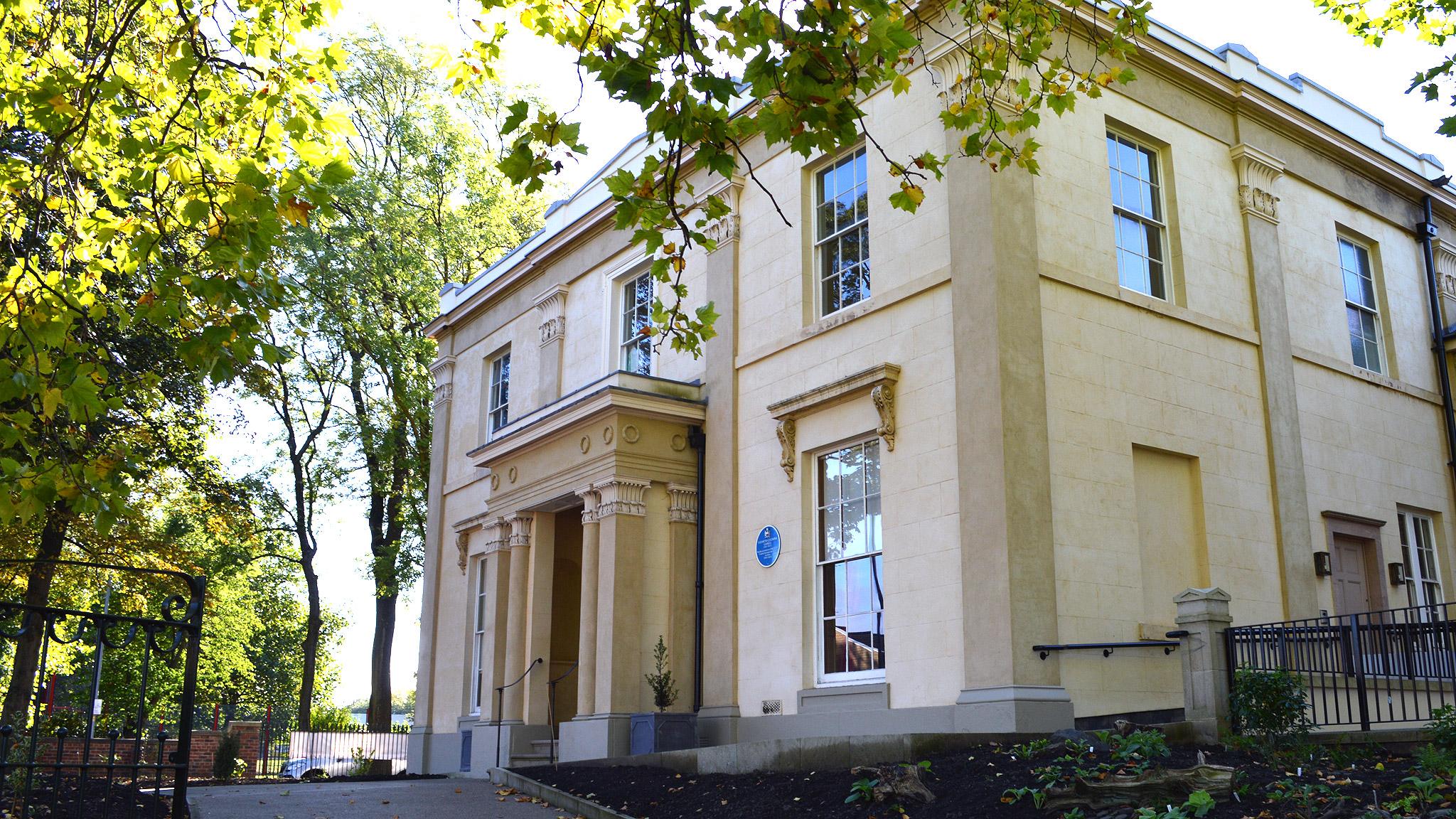
- Published9 July 2014
